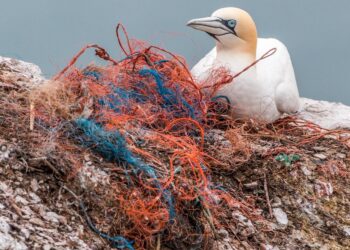Revolutionizing Sustainability: Exploring Plastic-Free Alternatives for a Greener Tomorrow
In today’s rapidly evolving world, sustainability is more than a buzzword; it’s a necessary shift in how we interact with our environment. One of the most crucial elements in this transformation involves addressing the pervasive use of plastics. Every year, millions of tons of plastic waste end up in the oceans, harming marine life and polluting our planet. It has become imperative to explore and adopt plastic-free alternatives to ensure a sustainable future.
The Impact of Plastics on the Environment
The convenience of plastics in various applications cannot be overstated, however, their detrimental impact on the environment is alarming. Plastics are not only non-biodegradable, but they also require hundreds of years to break down, leading to long-lasting pollution. Environmentalists emphasize the urgent need to reduce plastic consumption and promote plastic-free alternatives to preserve natural habitats and biodiversity.
Plastic-Free Solutions for Daily Life
Turning the tide against plastic pollution starts with simple changes in daily life. You can significantly reduce your plastic footprint by choosing alternatives that are equally efficient and eco-friendly.
1. Eco-Friendly Packaging
The packaging industry is the largest contributor to plastic waste. Opting for products that use biodegradable or recyclable packaging can make a substantial difference. items made from materials like cardboard, paper, bamboo, and even certain bioplastics offer sustainable alternatives.
2. Reusable Containers
Shifting from single-use plastic containers to reusable options is another effective strategy. Stainless steel, glass, and silicone containers are excellent replacements that are not only durable but also non-toxic.
3. Sustainable Personal Care Products
The personal care industry is notorious for plastic overuse. Choosing items like bamboo toothbrushes, bar shampoos, and solid conditioners can drastically cut down personal plastic use.
Industrial Innovations
In addition to lifestyle changes, technological and industrial innovations play a crucial role in advancing sustainability. Many companies are now investing in research to develop sustainable materials that can replace plastics in various applications.
Biodegradable Plastics
Scientists are working on plastics made from plant materials that can decompose in a natural environment much faster than traditional plastics. These bioplastics are not only sustainable but also reduce dependency on fossil fuels.
Eco-Friendly Manufacturing Processes
Many industries are adopting manufacturing processes that reduce plastic usage and carbon footprint. For example, using renewable energy sources and recycling waste products during manufacturing are proven methods to enhance sustainability.
Government and Policy Makers’ Role
For a successful transition to a plastic-free future, governmental policies play a pivotal role. Implementing regulations that limit plastic production, promote plastic recycling, and encourage the use of sustainable materials are critical steps.
Bans and Restrictions on Single-Use Plastics
Governments worldwide are beginning to impose bans or restrictions on the use of single-use plastics. Such legislative actions are aimed at pushing industries toward more sustainable practices.
Incentives for Sustainable Practices
Fiscal incentives for businesses that adopt eco-friendly practices can significantly boost the proliferation of plastic-free alternatives. These can include tax breaks, subsidies, and grants for research in sustainable materials and technologies.
How Consumers Can Drive Change
Ultimately, consumers have immense power to influence industries. By opting for eco-friendly products and supporting companies that prioritize sustainability, consumers can drive significant change.
Supporting Ethical Brands
Choosing to buy from brands that transparently promote sustainability and ethical practices can encourage more businesses to adopt greener policies.
Spreading Awareness
Each individual can contribute by raising awareness about the environmental impacts of plastics and promoting sustainable alternatives. Social media, blogs, and community involvement can help spread the word and inspire others to make more informed choices.
Conclusion
While the challenge of eliminating plastics from our daily lives and industries is daunting, the development and adoption of plastic-free alternatives offer a beacon of hope. By embracing sustainable practices at personal, industrial, and governmental levels, we pave the way toward a cleaner, greener, and more sustainable future. It is a collective effort that requires commitment, innovation, and continual adjustment to our lifestyle and operations. The time for action is now; every step towards a plastic-free environment is a step towards preserving our planet for future generations.
Revolutionizing sustainability by exploring plastic-free alternatives indeed shapes a greener tomorrow. Let’s make the shift together.











